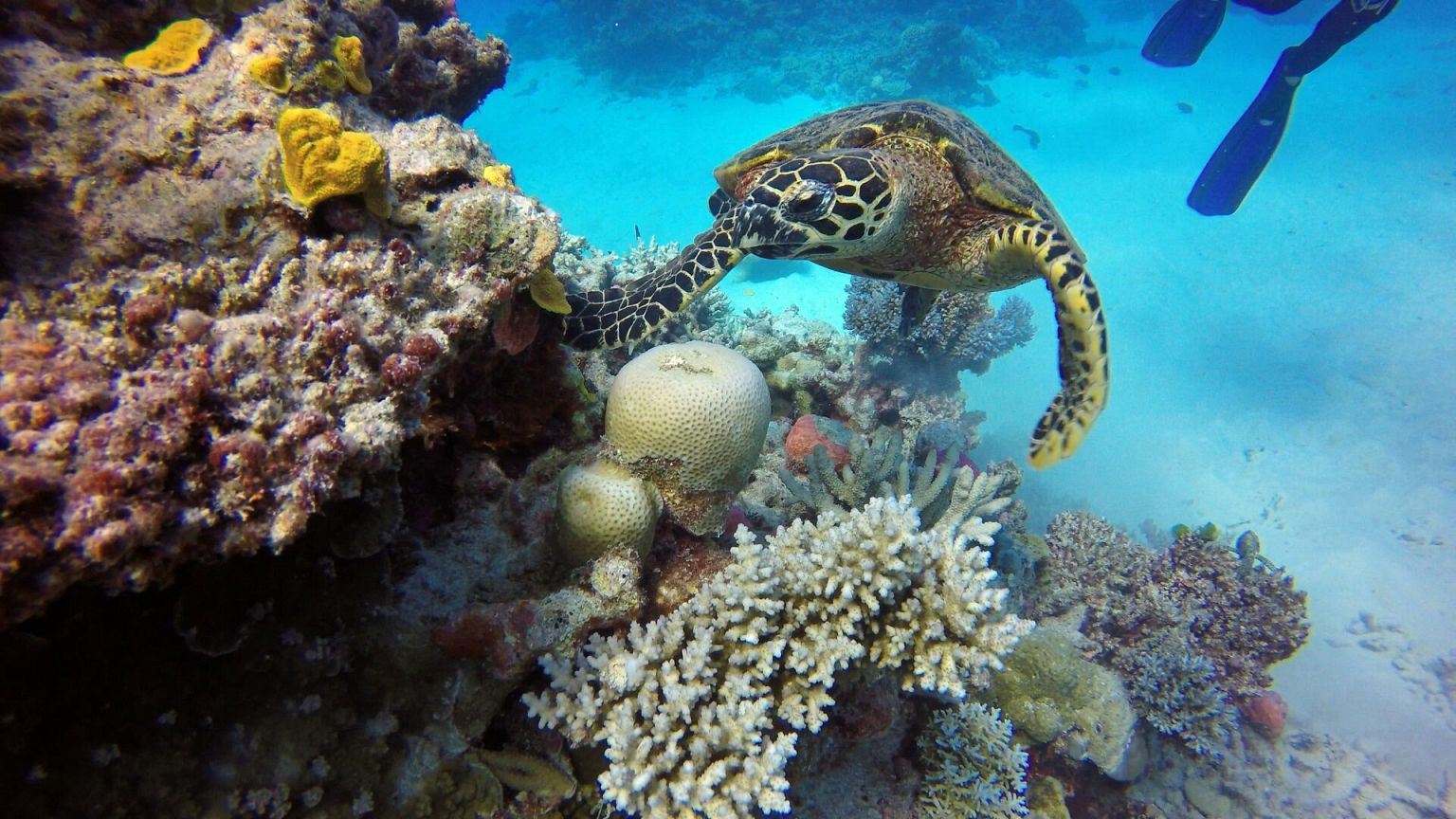Top Stories
Urgent: Great Barrier Reef Faces Record Coral Loss Amid Climate Crisis

UPDATE: The Great Barrier Reef is experiencing its worst coral loss on record, with some areas suffering a staggering 70 percent decline in coral cover. This alarming news comes from a new report by the Australian Institute of Marine Science (AIMS), revealing significant damage caused by climate-related stressors over the past year.
The survey, conducted annually since 1986, indicates that the reef’s health has plummeted following a 2024 mass bleaching event, compounded by two severe cyclones and freshwater flooding. Nearly half of the 124 reefs surveyed reported coral losses, marking a worrying trend for Australia’s iconic marine ecosystem.
Dr. Mike Emslie, who leads AIMS’ Long-Term Monitoring Program, stated, “The quick reversal of recent coral recovery appears part of an emerging trend.” This year, the northern regions of the reef saw coral cover decline from 39.8 percent to 30.0 percent, the largest single-year drop ever recorded. Meanwhile, the central reef dropped by 13.9 percent, and the southern reef faced the most severe decline, plummeting 30.6 percent to just 26 percent cover.
The widespread losses are unprecedented, with only 10 percent of surveyed reefs showing any increase in coral cover. Emslie noted that this is the first substantial bleaching impact recorded in the southern region, raising new concerns about the reef’s resilience.
The scale of the crisis extends beyond Australian waters. According to the US National Oceanic and Atmospheric Administration (NOAA), over 84 percent of the world’s reefs have experienced severe heat stress leading to bleaching in the past year. This event has been classified as the fourth global bleaching event, reflecting a broader, alarming trend driven by climate change.
Marine heatwaves, longer and more intense due to climate change, have exacerbated the situation. When corals overheat, they expel the algae that provide them with color and essential nutrients, leading to starvation and death if high temperatures persist. Unfortunately, scientists warn that recovery periods between bleaching events are shrinking dangerously.
The implications of these findings are dire. While the Great Barrier Reef may still host more live coral than many other global reef systems, the rapid decline signals a critical juncture. The reef’s recovery has relied on favorable conditions and fast-growing coral species, which are now increasingly vulnerable to recurrent bleaching.
The summer of 2024 also brought additional stressors, including cyclones, flooding, and outbreaks of crown-of-thorns starfish, which can devastate coral populations. As we enter 2025, another bleaching event is already underway, with its impact expected to be reflected in future data.
“These results provide strong evidence that ocean warming, caused by climate change, continues to drive substantial and rapid impacts to reef coral communities,” warned Selina Stead, CEO of AIMS. Without immediate reductions in greenhouse gas emissions and urgent global action to mitigate ocean warming, the future of the world’s coral reefs, including the Great Barrier Reef, remains in jeopardy.
The situation is developing rapidly, and experts urge immediate attention to reverse these alarming trends. The future of the Great Barrier Reef hangs in the balance—what happens next could determine the health of coral ecosystems worldwide.
-

 Top Stories4 weeks ago
Top Stories4 weeks agoTributes Surge for 9-Year-Old Leon Briody After Cancer Battle
-

 Entertainment2 months ago
Entertainment2 months agoAimee Osbourne Joins Family for Emotional Tribute to Ozzy
-

 Politics3 months ago
Politics3 months agoDanny Healy-Rae Considers Complaint After Altercation with Garda
-

 Top Stories2 months ago
Top Stories2 months agoIreland Enjoys Summer Heat as Hurricane Erin Approaches Atlantic
-

 World3 months ago
World3 months agoHawaii Commemorates 80 Years Since Hiroshima Bombing with Ceremony
-

 Top Stories3 months ago
Top Stories3 months agoFianna Fáil TDs Urgently Consider Maire Geoghegan-Quinn for Presidency
-

 World3 months ago
World3 months agoGaza Aid Distribution Tragedy: 20 Killed Amid Ongoing Violence
-

 World3 months ago
World3 months agoCouple Convicted of Murdering Two-Year-Old Grandson in Wales
-

 Top Stories4 weeks ago
Top Stories4 weeks agoNewcastle West Woman Patricia Foley Found Safe After Urgent Search
-

 Top Stories2 months ago
Top Stories2 months agoClimbing Errigal: A Must-Do Summer Adventure in Donegal
-

 Top Stories2 months ago
Top Stories2 months agoHike Donegal’s Errigal Mountain NOW for Unforgettable Summer Views
-

 World3 months ago
World3 months agoAristocrat Constance Marten and Partner Convicted of Infant Murder









